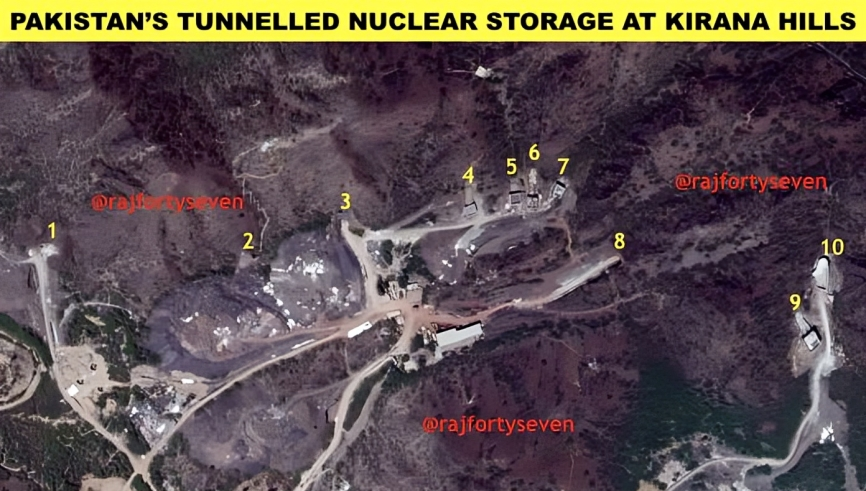In a decisive response to ongoing cross-border terrorism, the Indian Armed Forces conducted “Operation Sindoor” during the night of May 6–7, targeting key terrorist infrastructure located in Pakistan and Pakistan-occupied Jammu and Kashmir (PoJK). The operation marks a significant escalation in India’s counter-terror strategy and reinforces its commitment to safeguarding national security.
Addressing the media, Air Marshal A.K. Bharti explained that the operation was carefully calibrated to strike only terror-linked facilities, ensuring that no Pakistani military or nuclear installations were targeted. When pressed on the potential risk of escalation, Bharti remarked, “Thank you for telling us that Kirana Hills houses some nuclear installation, we did not know about it. We have not hit Kirana Hills, whatever is there. “ His response highlighted India’s deliberate effort to avoid any misinterpretation or targeting of sensitive Pakistani infrastructure.
Also Read: Did India Strike Pakistan’s Nuclear Facilities?
The operation involved nine confirmed strikes, according to Defence Minister Rajnath Singh, who described the mission as “thoughtful, measured, and proportionate.” Singh reaffirmed that the action was taken in light of India’s right to defend itself against acts of terror.
Foreign Secretary Vikram Misri supported this position, asserting that the strikes were designed to be “non-escalatory, responsible, and focused exclusively on counterterrorism.” He stressed that India’s actions were consistent with its longstanding policy of zero tolerance toward terrorism.
The military campaign follows a sharp rise in tensions between India and Pakistan, particularly after the April 22 Pahalgam terror attack, which claimed 26 Indian lives. In response, Operation Sindoor is seen as part of a broader strategic framework that balances decisive action with restraint.
While Pakistan has vowed to retaliate, India’s leadership, including President Droupadi Murmu and Prime Minister Narendra Modi, has expressed unwavering support for the Armed Forces and reiterated that national security remains paramount.
With both nations armed with nuclear capabilities, the international community is closely monitoring the situation. While global leaders have called for de-escalation, India’s move underscores its evolving military doctrine — one that is assertive yet measured, seeking to neutralize threats without provoking a wider conflict.
As the region braces for potential fallout, Operation Sindoor signals a new phase in India’s approach to cross-border terrorism — assertive, strategic, and grounded in international norms of self-defense.













